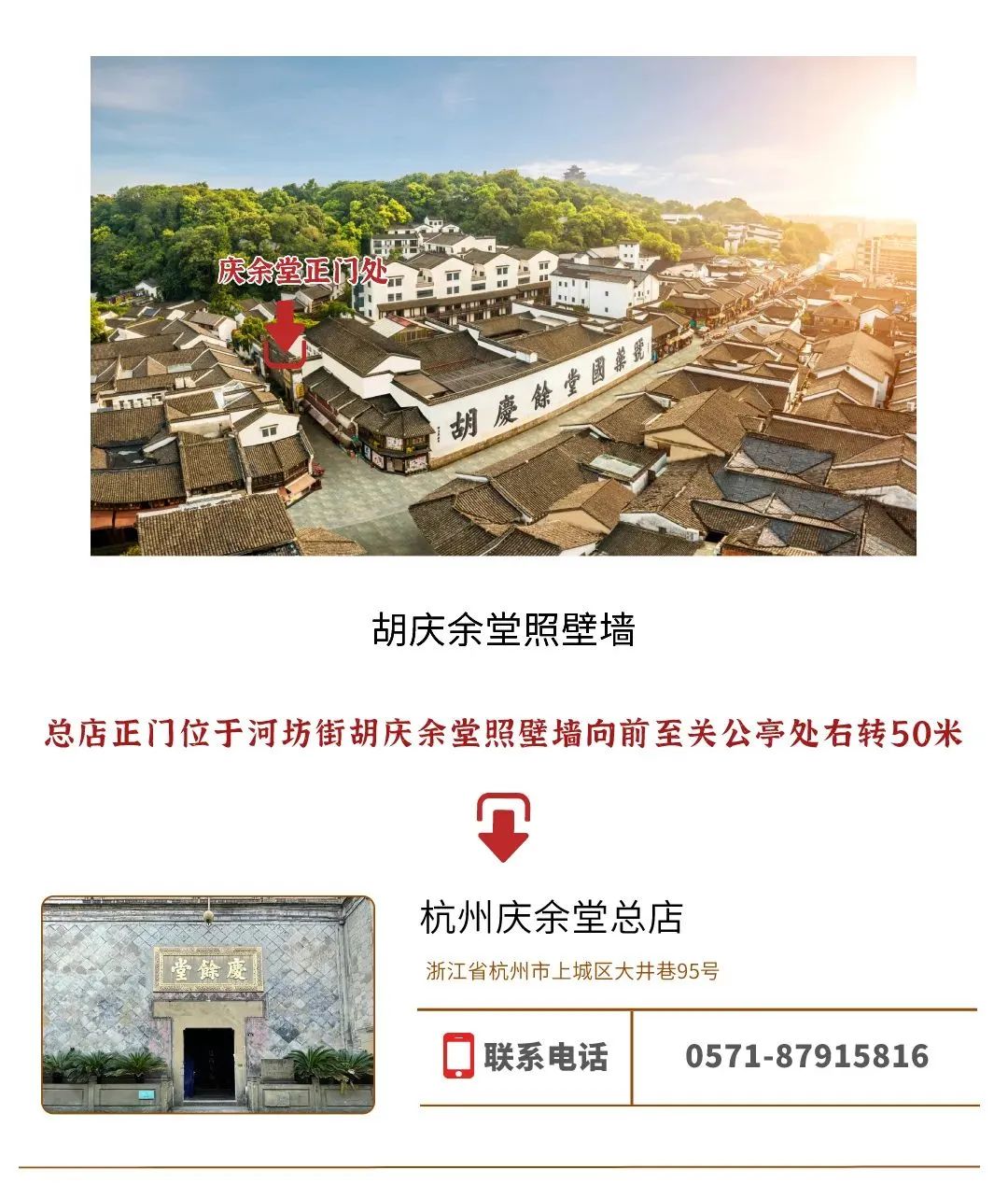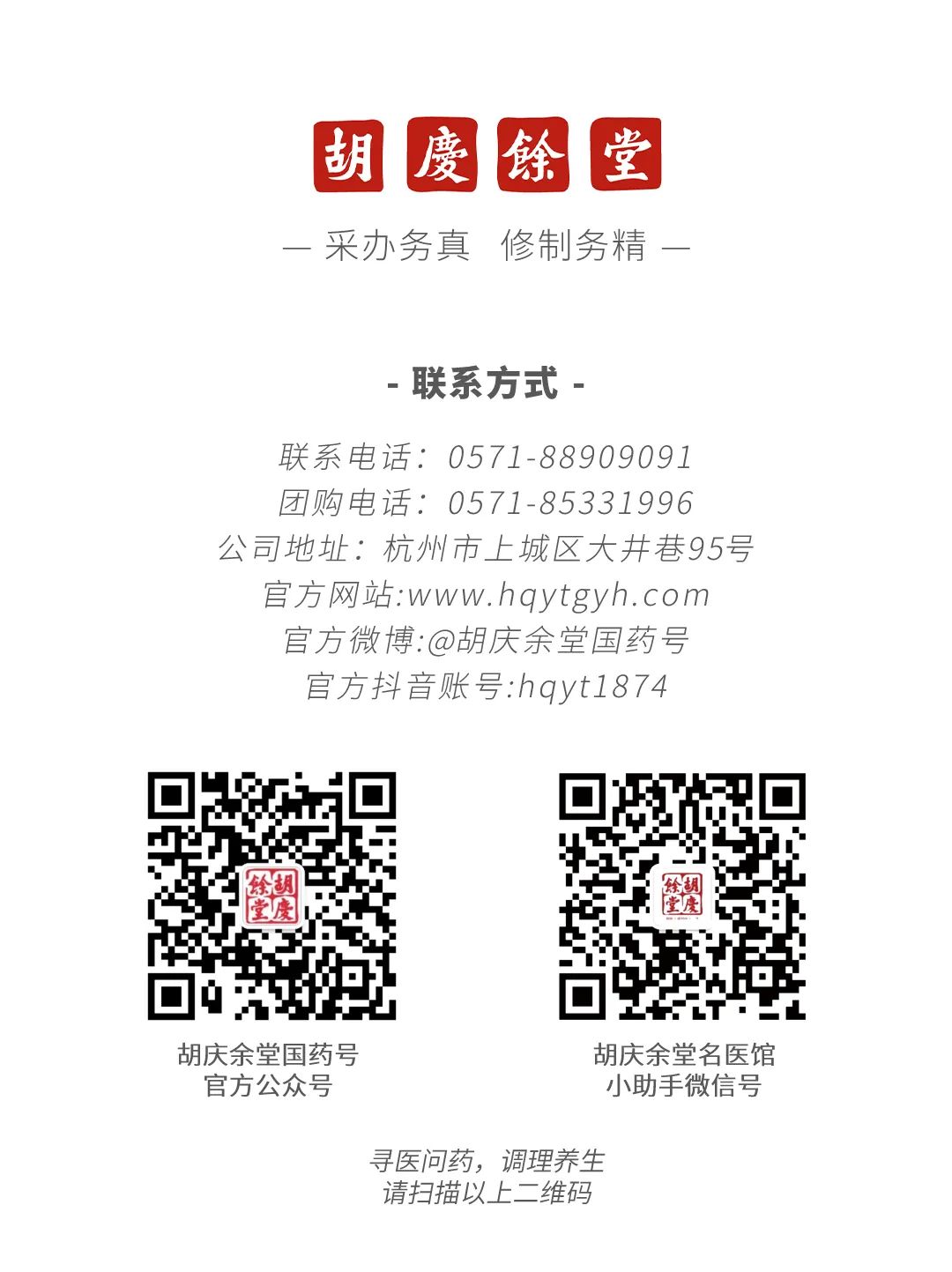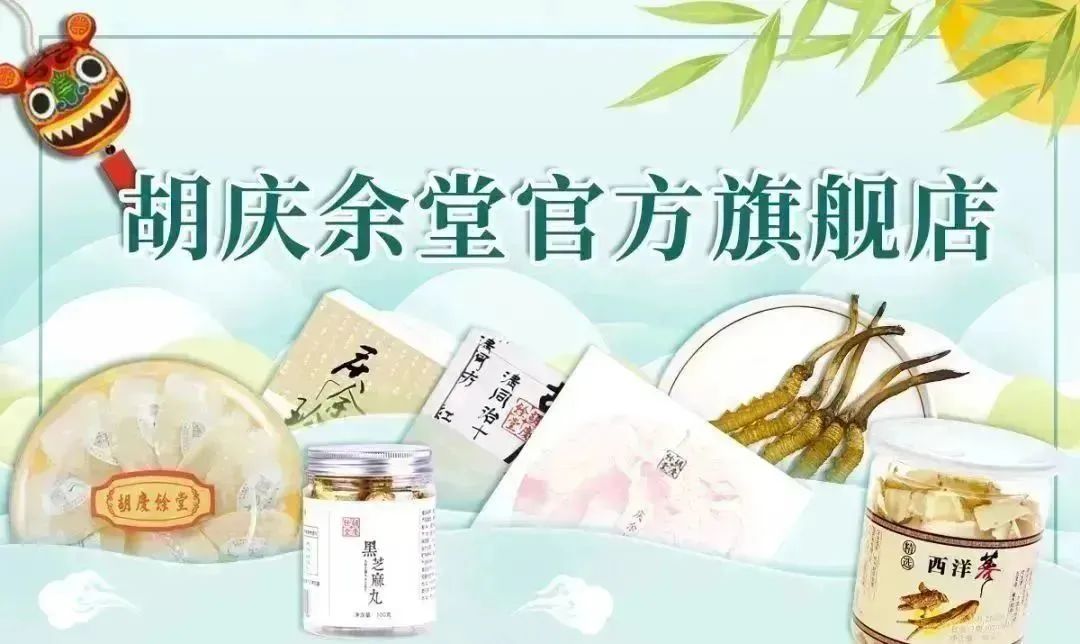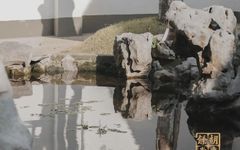

Qi (气) and blood (血) are the two fundamental substances in the human body, playing a crucial role in life activities.
In Traditional Chinese Medicine (TCM) theory, the meridians (经络) are energy pathways that permeate the body, corresponding to blood vessels, where “Qi” flows. The heart merely provides the driving force for blood circulation, while the nourishment of the body relies on the movement of “Qi” within the meridians. Under normal circumstances, Qi and blood are interdependent and inseparable, as the saying goes, “Blood depends on Qi, and Qi is attached to blood.”
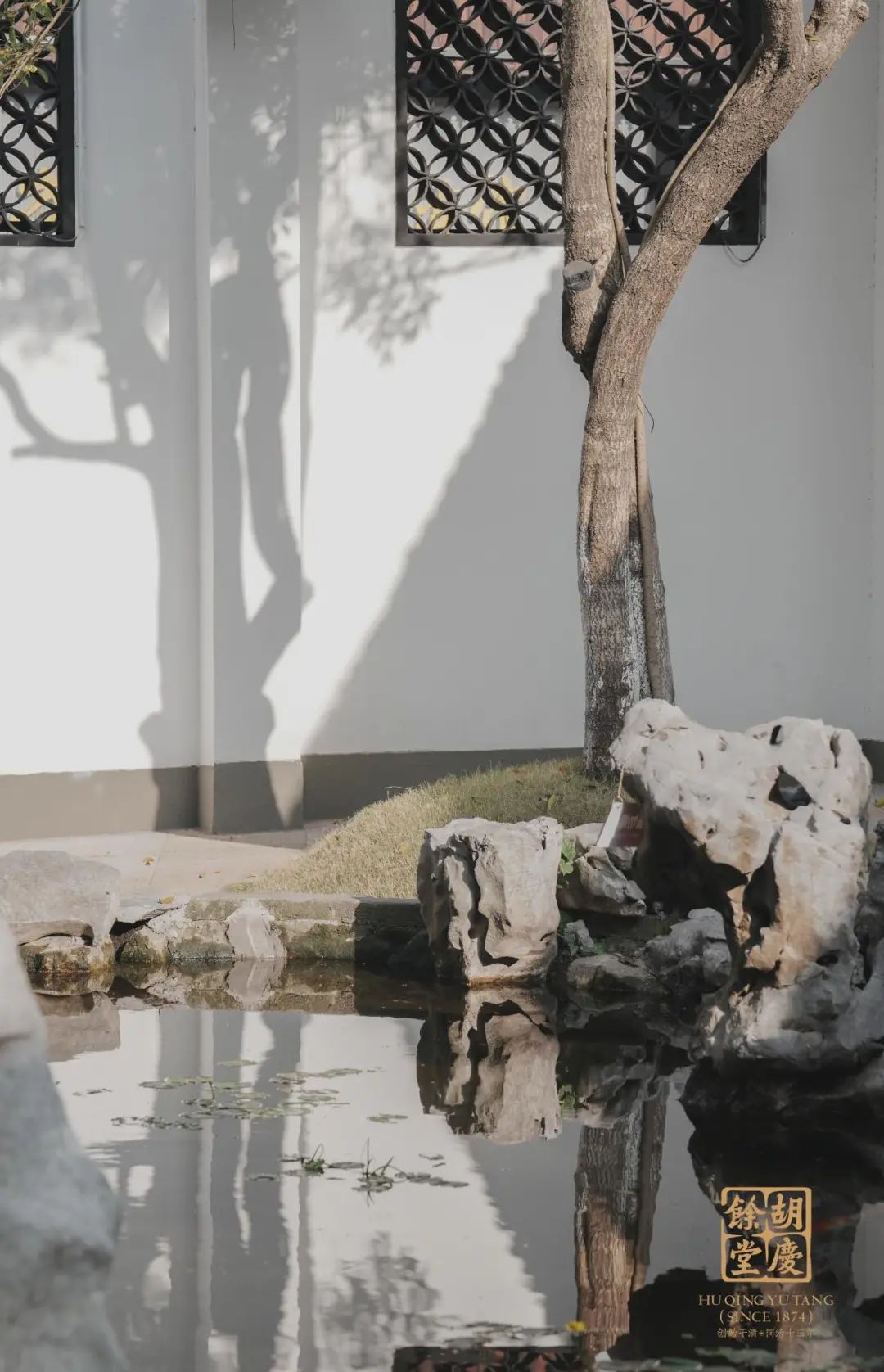
Qi stagnation (气滞) and blood stasis (血瘀) are usually caused by emotional distress, external pathogenic factors, or prolonged illness leading to physical weakness.
Once formed, there may not be severe diseases or noticeable symptoms initially, but hidden dangers exist, and over time, local lesions may develop.
So what are the signals that can be self-checked early?
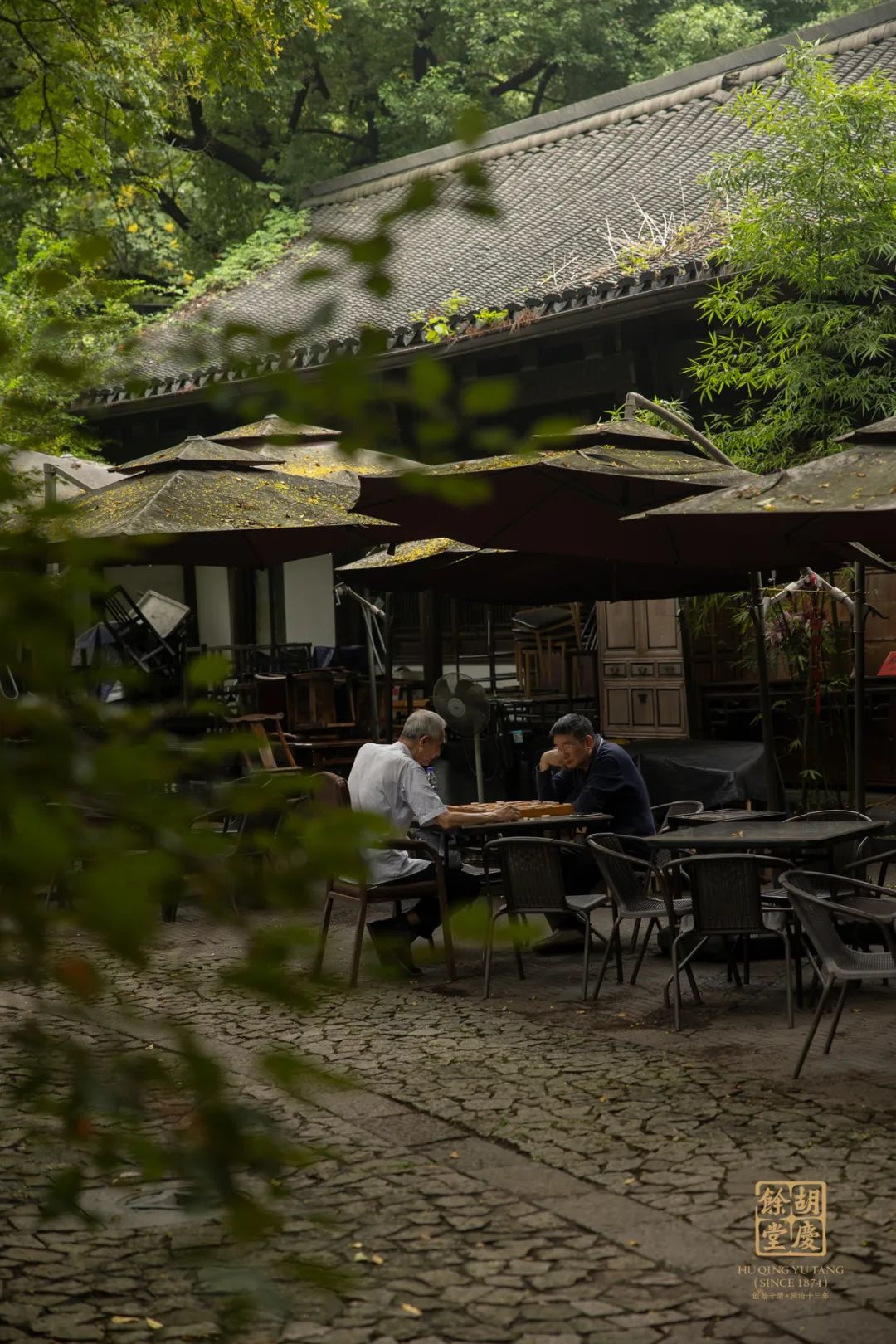
-
Body: Tingling and Numbness
As TCM often states, “When there is flow, there is no pain; when there is pain, there is no flow.” The area where blood stasis occurs will have blocked meridians, so individuals with blood stasis often feel a tingling sensation in certain areas, especially in the abdomen, which may feel painful or distended, and the hands and feet may easily become numb.
-
Skin: Dryness, Dark Complexion, Dark Lips, Dark Circles
Dry skin is a clear manifestation of blood stasis. In severe cases, there may be dry, scaly patches on the legs. Blood stasis is akin to “stones” in the blood vessels, leading to poor blood flow and accumulation in certain areas, which manifests on the skin as a dull complexion, dark lips, and dark circles around the eyes.
-
Feelings: Thirst, Insomnia, Hair Loss, Poor Memory
The Jin Gui Yao Lue states that individuals with blood stasis may exhibit the symptom of “only wanting to rinse with water, not swallow it.” When there is blood stasis, the Qi mechanism is obstructed, preventing Qi from transporting fluids to the head and face, leading to dryness; at the same time, individuals with blood stasis often feel a sense of fullness in the abdomen, making them reluctant to drink.
Moreover, the heart governs the mind, and blood is the material basis for mental activities. If blood does not nourish the heart, memory will naturally decline. Blood stasis prevents blood from nourishing the head, leading to hair loss and insomnia.
-
Women: Scanty Menstruation, Dark Color, Blood Clots, Dysmenorrhea
Women with a blood stasis constitution experience poor circulation of Qi and blood, leading to obstruction of menstrual flow, which may result in irregular periods, scanty flow, or the presence of blood clots. The menstrual blood may appear dark purple or black, which is characteristic of blood stasis. “No flow means pain,” and these women often experience dysmenorrhea.
(If two or more of the above four symptoms are present, it is likely that there is already blood stasis in the body.)
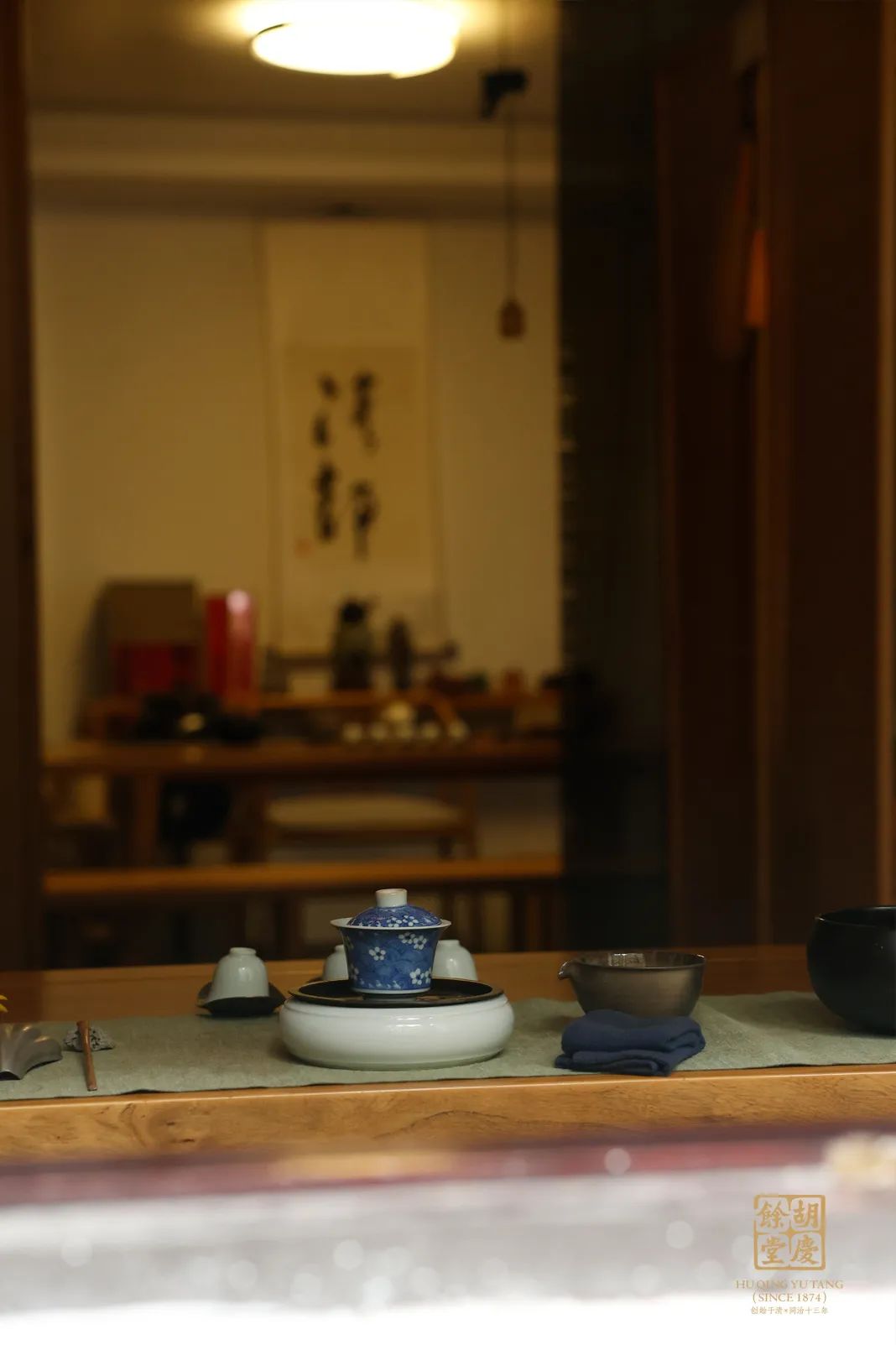
Qi stagnation and blood stasis coexist, and the adjustment principle is to soothe the liver and regulate Qi, invigorate blood, and resolve stasis. Common adjustment methods include herbal remedies, acupoint therapy, dietary adjustments, exercise, and emotional regulation.
-
Herbal Remedies: Xiao Yao San (逍遥散), Tao Hong Si Wu Tang (桃红四物汤), Xue Fu Zhu Yu Tang (血府逐瘀汤), Shao Fu Zhu Yu Tang (少腹逐瘀汤), etc., can effectively regulate Qi and invigorate blood. The combination of Qi-regulating and blood-moving herbs should be adjusted according to the severity of the patient’s condition to prevent overtreatment;
-
Acupoint Therapy: Qi stagnation and blood stasis can be treated through the Liver Meridian (足厥阴肝经), Spleen Meridian (足太阴脾经), and Ren Meridian (任脉). Acupoints such as Dan Zhong (膻中), Tian Tu (天突), and Ge Shu (膈俞) can invigorate blood, resolve stasis, and soothe the liver and regulate Qi. Techniques such as acupuncture, moxibustion, cupping, gua sha, acupoint application, and bloodletting can be employed;
-
Dietary Adjustments: In daily life, it is advisable to avoid cold and raw foods that can affect the circulation of Qi and blood, exacerbating Qi stagnation and blood stasis. Foods that invigorate Qi and blood, such as hawthorn (山楂), black fungus (木耳), onion (洋葱), radish (萝卜), peach kernel (桃仁), ginger (生姜), and garlic (大蒜), can be consumed in moderation;
-
Exercise Adjustments: Engaging in moderate aerobic exercise, such as jogging, hiking, skipping rope, or swimming, can accelerate blood circulation and promote metabolism, helping to alleviate Qi stagnation and blood stasis;
-
Emotional Regulation: It is important to soothe liver Qi, meaning that one should maintain a pleasant emotional state and avoid frequent pent-up anger and emotional stagnation, as this can obstruct Qi flow and consequently lead to blood stagnation.
Qi stagnation and blood stasis represent a pathological state. When symptoms appear, it is advisable to seek medical attention promptly and receive targeted treatment under a physician’s guidance.
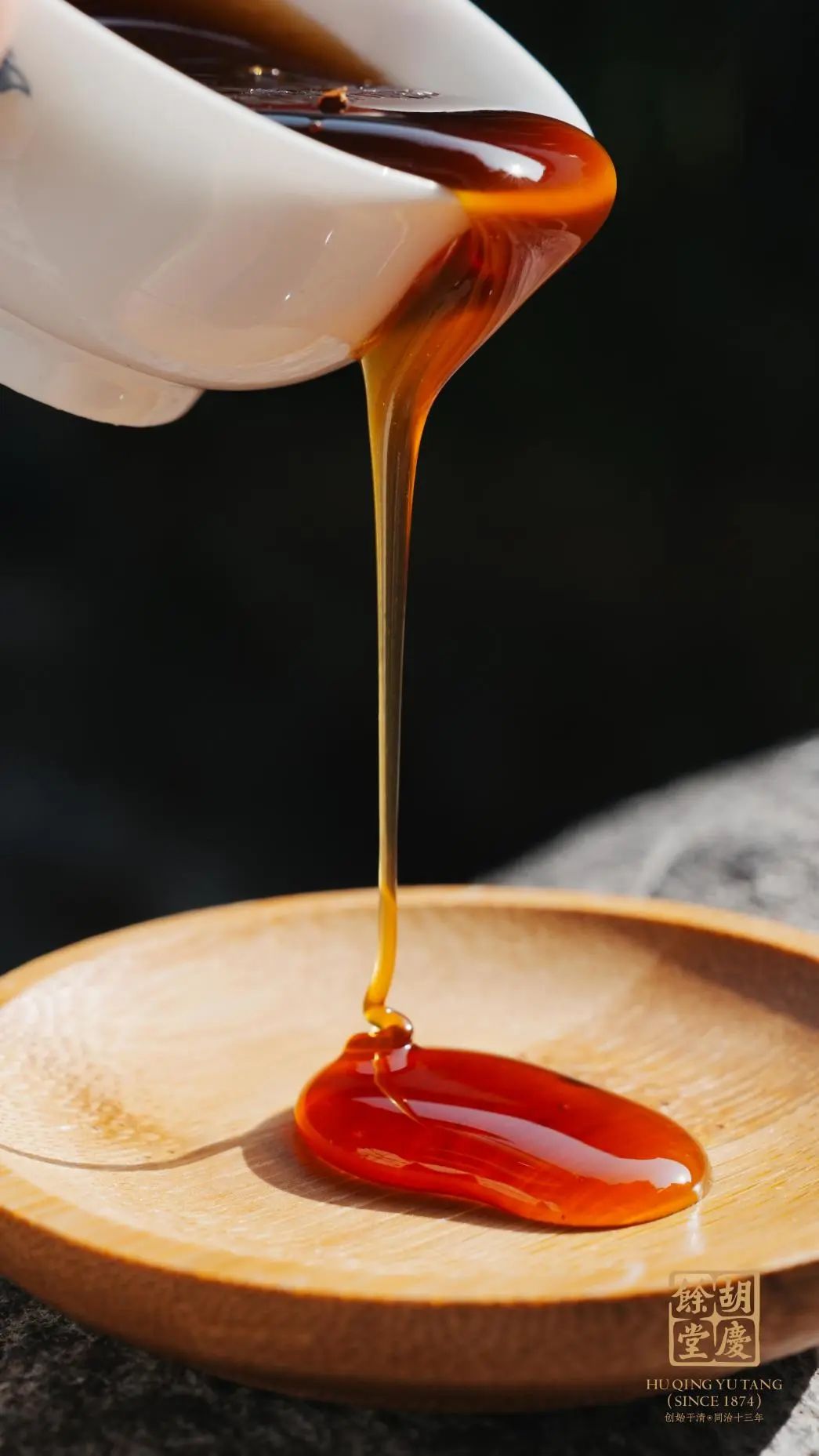
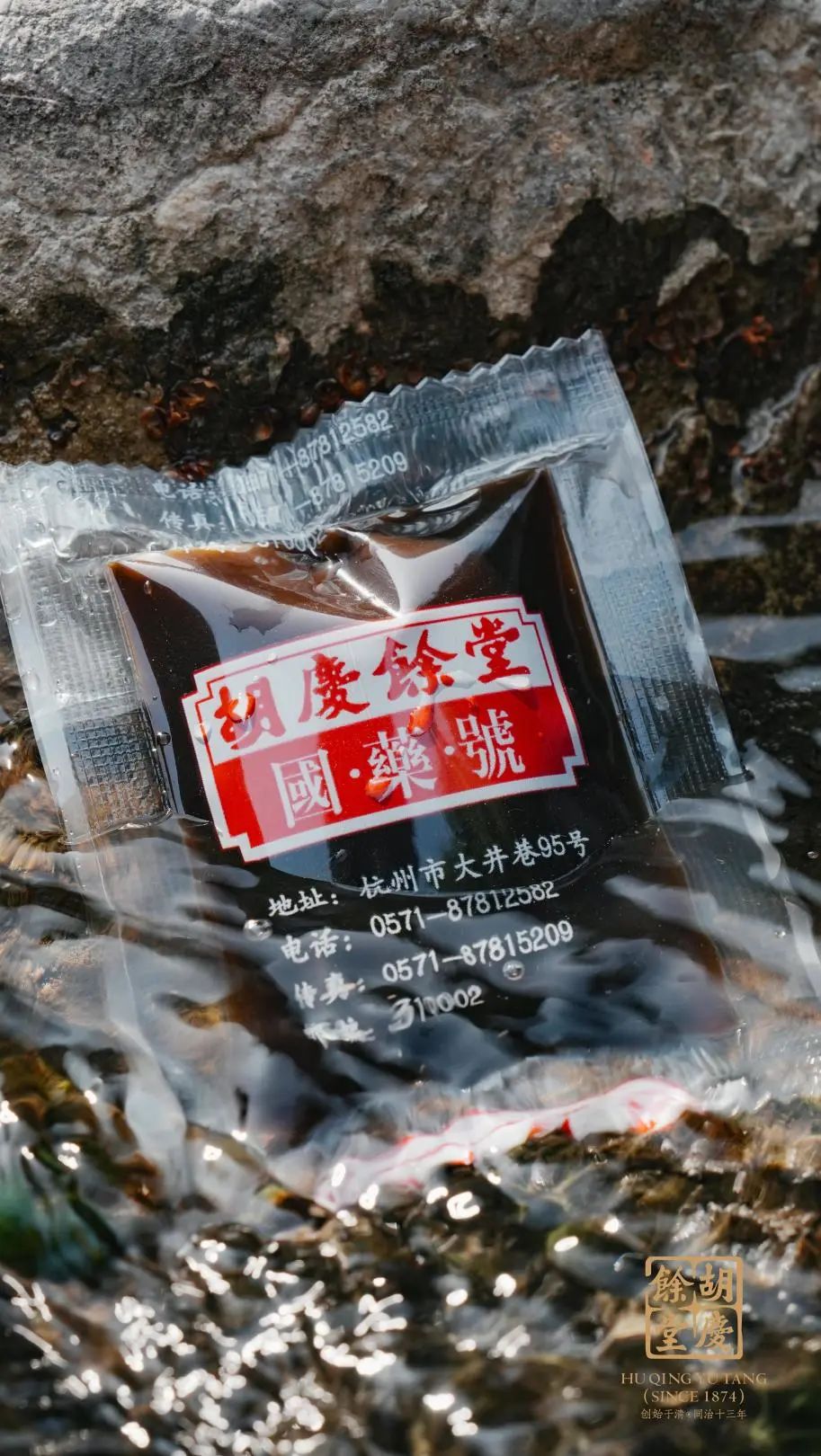
▲
Beauty Nourishing Cream
A common herbal pair for treating blood stasis is peach kernel (桃仁) combined with safflower (红花). These two herbs, based on the principle of mutual reinforcement, are both blood-invigorating and stasis-resolving, and their combined effect is stronger.
The well-known Si Wu Tang (四物汤) includes peach kernel and safflower. According to Zhonghua Bencao, “Safflower: has the effect of invigorating blood and regulating menstruation; dispelling stasis and alleviating pain. Peach kernel: has the effect of breaking blood and moving stasis; moistening dryness and lubricating the intestines.”
The Hu Qing Yu Tang Beauty Nourishing Cream is based on Salvia miltiorrhiza (丹参), peach kernel, and safflower, with the addition of ginseng (人参) and reishi mushroom (灵芝). According to Zhonghua Bencao, “Ginseng: has the effect of greatly tonifying Qi, securing fluids, and calming the spirit. Reishi: benefits Qi and blood, calms the spirit, and strengthens the spleen and stomach.” These herbs greatly assist in improving physical constitution.
About the Author
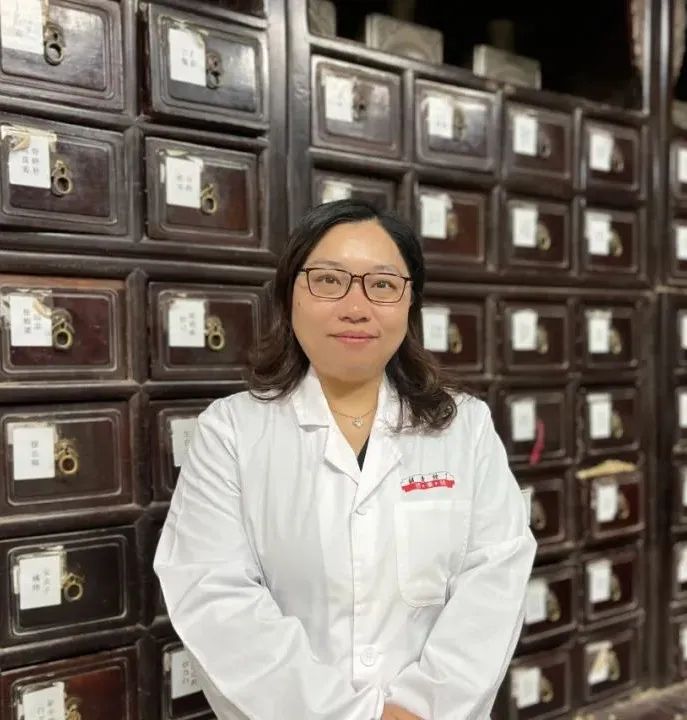
Jiang Lingxia
Deputy General Manager of Hu Qing Yu Tang National Medicine
Leader of Provincial Master Skills Studio
National Technical Expert
Deputy Chief Chinese Medicine Pharmacist
Senior Technician
Column Introduction
Rational nutrition is the foundation for ensuring and enhancing immunity. Therefore, in the post-pandemic era, it is even more important to practice scientific health preservation and take responsibility for one’s health.
To popularize TCM knowledge and help citizens better maintain health, Hu Qing Yu Tang National Medicine has launched the“Master Jiang Talks about Ginseng and Deer Antler” column, bringing you knowledge on nourishing health and strengthening the constitution.
Editor: Wang Wenyi Layout: Wang Wenyi Photo Source: Zhang Fengtian, Wu Fang Review: Bai Zhu, Jiang LingxiaDistribution of Hu Qing Yu Tang pharmacies and clinics
For more store information, please follow the WeChat public account “hqythqyt“
Click “Company Overview” – “Store Distribution” to inquire
Or click the navigation bar below to view
